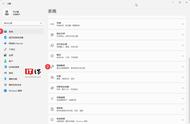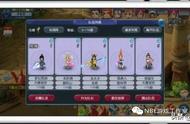Unit 1 My day
一、重点词汇。
1.四会词汇: eat breakfast吃早饭 have···class 上······课 play sports 进行体育运动 exercise 活动;运动 domorning exercises做早操 eat dinner吃晚饭 clean my room 打扫我的房间 go for a walk 散步 go shopping 去买东西;购物 take学习;上(课) dancing跳舞;舞蹈 take a dancing class 上舞蹈课
2. 三会词汇: when什么时候 after 在(时间)后 start 开始 usually 通常地;惯常地 Spain 西班牙 late 晚;迟 a.m. 午前;上午 p.m. 午后;下午 why 为什么 shop 去买东西;购物 work 工作 last 上一个的;刚过去的sound 听起来好像 also 还;也 busy 忙的 need 需要 play 戏剧;剧本 letter 信 live 居住island 岛 always 总是;一直 cave 山洞;洞穴 go swimming 去游泳 win 获胜 二、其他日常活动。 get up起床 eat lunch吃午饭 go to bed 上床睡觉 wash my face洗脸 wash my clothes 洗我的衣服 watch TV看电视 play ping-pong打乒乓球 playthe pipa弹琵琶 go swimming去游泳 go running去跑步 do homework 做作业 do kung fu练武术 play football踢足球 play basketball打篮球
三、频度副词。 always总是,一直(100%) usually通常(80%) often 经常(60%) sometimes(30%)有时 四、疑问词。 when什么时候 why 为什么
五、重点句型。 1、询问别人什么时候做某事的句型及回答。 句型结构:问:When do you 动词短语原形 其他?(你/你们什么时候做某事?) 答:I/We( 频度副词) 动词短语原形 at 具体时间(我/我们通常在几点做某事。) 例:问:When do you go to bed?(你什么时候上床睡觉?) 答:I go to bed at 9:00p.m (我晚上9点上床睡觉。) 注意:当主语是第三人称单数(he,she,it,单个人名或单数名词)时,助动词do要变成does, 句型结构是:When does 主语(第三人称单数) 动词短语原形 其他? 2、询问别人周末做什么的句型及回答。 句型结构:问:What do you do on theweekend?(你周末做什么?) 答:I( 频度副词) 动词(短语) 其他。 例:问:What do you do on theweekend?(你周末做什么?) 答:I usually read books. (我通常看书。) 注意:当主语是第三人称单数(he,she,it,单个人名或单数名词)时,助动词do要变成does, 句型结构是:What does 主语(第三人称单数) do on the weekend?
六、四会句子: When do you finish class in the morning ? 你们上午的课到几点结束? We finish class at 1 o’clock . 我们一点钟结束上午的课。 What do you do on the weekend ? 你周末做什么? I often watch TV and play ping-pong with my father . 我经常看电视,也常和我爸爸一起打乒乓球。
七、语音: cl /kl/ clean clock class clever pl /pl / plate eggplant please play
Unit 2 My favourite season
一、重点词汇 1. 四会: spring 春天 summer 夏天 autumn秋天 winter冬天 season季节 picnic野餐 goon a picnic 去野餐 pick摘;采集 pick apples摘苹果 snowman雪人 make a snowman 堆雪人 go swimming去游泳
2. 三会: which哪一个 best最;最高程度地 snow 雪 good job 做得好 because 因为 vacation 假期 all 全;完全 pink 粉色;粉色的 lovely可爱的;美丽的 leaf叶子(复数leaves) fall 落下;(美式)秋天 paint 用颜料绘画
二、其他 1、形容天气的形容词 hot 炎热的 warm暖和的 rainy多雨的 windy 多风的 cold 寒冷的 cool凉爽的 sunny晴朗的 cloudy 多云的 snowy下雪的 由go构成的活动短语 go swimming去游泳 go shopping去购物 go boating去划船 go skating去滑冰 gohiking去远足 go fishing去钓鱼
三、重点句型 1、询问别人天气怎么样的句型及回答。 句型结构:问:What’sthe weather like 时间 地点?(······天气怎么样?) 答:It’s 表示天气的形容词 例:问:What’s the weather like in winter in Beijing?(北京冬天的天气怎么样) 答:It’s cold and windy.(有风而且寒冷。) 2、询问别人最喜欢的季节句型及回答。 句型结构:问:Which season do you likebest? (你最喜欢的季节是哪一个?) 答:I like 季节 best或直接说季节名称。 同义句还有:What’s your favourite season? 3、询问别人喜欢某个季节的原因的句型及回答。 句型结构:问:Why do you like 季节名称?或直接用“Why”来提问。 答:一般要用“because”引导的句子来说明理由,可以从天气相关的活动等方面来说。 例:问:Why do you likespring?(你为什么喜欢春天?) 答:Because I can fly kites.(因为我能放风筝。) 问:Why do you like summer?(你为什么喜欢夏天?) 答:Because I can go swimmingeveryday.(因为我每天都能去游泳。) 问:Why do you like autumn?(你为什么喜欢秋天?) 答:Because the weather is cool.(因为天气凉爽。) 问:Why do you like winter?(你为什么喜欢冬天?) 答:Because I can make a snowman.(因为我能堆雪人。)
四、四会句子: Which season do you like best , Mike ? 迈克,你最喜欢哪个季节? Winter . 冬天。 Why ?为什么? Because I like summervacation ! 因为我喜欢暑假!
五、语音: br /br/ brown library brother umbrella gr /gr/ green grapes grandpa grow
Unit 3 My school calendar
一、重点词汇 1.四会: January(Jan.)一月 February(Feb.)二月 March(Mar.)三月 April(Apr.)四月 May五月 June(Jun.)六月July(Jul.)七月 August(Aug.)八月 September (Sept.)九月October(Oct.)十月 November(Nov.) 十一月 December(Dec.)十二月
2. 三会: few 不多;很少 a few一些 thing事情 meet 聚会;开会 sports meet 运动会 Easter复活节 trip 旅行 year 年 plant 种植 contest 比赛;竞赛 theGreat Wall 长城 national 国家的 National Day 国庆日 American 美国的 Thanksgiving 感恩节 Christmas 圣诞节 holiday 假日;节日 game 游戏 roll 滚动 lookfor 寻找 chocolate 巧克力bunny (用作儿语)兔子RSVP (尤用于请柬)请赐复 by在...... 之前 注意: 1、月份的首字母一定要大写。 2、May没有缩写形式,September的缩写形式是“Sept.”,其他月份单词的缩写形式都是有单词的前三个字母加“·”构成。 3、月份的缩写形式不用在句子中,只能单独使用。 4、表示“在几月”时,要在月份单词前面加介词in, 但在几月几日用on。
二、常用节假日名称。 New Year’s Day元旦(1.1) Tree Planting Day 植树节(3.12) Easter 复活节 April Fool’s Day愚人节(4.1) May Day 劳动节(5.1) Mother’s Day母亲节(每年五月的第二个星期天) Children’s Day 儿童节(6.1) Father’s Day父亲节(每年六月的第三个星期天) Teachers’ Day教师节(9.10)China’s National Day国庆节(10.1) Mid-Autumn Day 中秋节(农历八月十五) Thanksgiving Day 感恩节(11月第4个周四) Christmas圣诞节(12.25) summer vacation暑假 winter vacation寒假
三、活动名称 sports meet 运动会 Easterparty 复活节聚会 school trip 学校旅行 Chinese test 语文测试 singingcontest歌咏比赛 birthday party生日聚会
四、介词in 、on、 at的用法。 1、in后面 上午/下午/晚上/月份/季节/年份。如:inthe morning, in April, in winter, in 2015. 2、on的后面 具体的某一天。 如:onMonday, on April 3rd, on Friday morning. 3、at后面 具体的时间点或与其他词构成固定搭配。如:at six o’clock, at 12:30,at noon.
五、重点句型。 1、问答某个活动或节日在几月份的句型及回答。 句型结构:问:When is 活动或节日名称? 答:It’s in 月份。 例:问:When is Christmas?(圣诞节在什么时候?) 答:It’s in December.(在十二月。) 2、询问别人将要做什么的句型及回答。 句型结构:问:What will you do 其他? 答:I will····=I’ll··· 例:问:What will you do for your mum on Mother’s Day?(母亲节你将为*妈做什么?) 答:I’ll give her some flowers.(我将送给她一些花。) 3、表达“我们将要···”的句型。 We’ll···=Wewill 后面 动词原形,这是一个一般将来时的句子,表示将来某个时间要发生的动作或事情。例:We’llhave a school trip.(我们将有一次学校旅行。) We’llhave a singing contest.(我们将有一次歌咏比赛。) We’lltake a dancing class.(我们将要上一节舞蹈课。)
六、四会句子: When is the party ? 聚会什么时候举行? It’s in April . 在4月。 When is the trip this year ? 今年的(秋)游在什么时候? It’s in October . We’ll go to the Great Wall . 在10月。我们将去长城。
七、语音:ch / ʧ/ China chicken lunch teacher /k/ school Christmas sh /ʃ/ sheep fish shirt shorts
Unit 4 When is Easter ?
一、重点词汇 1. 四会: first(1st) 第一(的) second (2nd)第二(的) third (3rd)第三(的) fourth (4th)第四(的)fifth(5th)第五(的) twelfth(12th)第十二(的) twentieth(20th)第二十(的) twentieth-first(21st)第二十一(的) twentieth-third(23rd)第二十三(的) thirtieth(30th)第三十(的) 2. 三会: special特殊的;特别的 fool傻瓜;蠢人 kitten小猫 diary日记 still 仍然;依旧;还是 noise 声音;响声;噪音 fur (某些动物的)浓密的软毛 open 开着的 walk行走
3.其他: sixth(6th) 第六(的) seventh(7th)第七(的) eighth(8th)第八(的) ninth(9th)第九(的) tenth(10th) 第十(的) eleventh(11th)第十一(的) thirteenth(13th) 第十三(的) fourteenth(14th) 第十四(的) fifteenth(15th)第十五(的) sixteenth(16th)第十六(的) seventeenth(17th) 第十七(的) eighteenth(18th) 第十八(的) nineteenth(19th)第十九(的) twentieth-second(22nd)第二十二(的)
二、用序数词表示具体的日期 在英语中,“几月几日”可以先说“月”,再说“日”,其中“日”要用序数词,书写时序数词前可以有“the”,也可以没有。但读日期时,the必须读出来。 如果要表示某年某月某日,通常按照“月、日、年”的顺序。 例如:March 3rd 读法是:March the third 翻译是:3月3日。 June1st,2014 读法是:Junethe first, two thousand and fourteen 翻译是:2014年6月1日。 三、基数词变序数词的口诀记忆 基变序有规律,结尾加上th; 一二三特殊记,结尾各是t,d,d; 八减t九去e,f来把ve替; y改为ie,结尾仍有th; 若是遇到几十几, 只变个位就可以。
四、重点句型 1、询问别人具体日期的句型及回答。 句型结构:问:When is 节日/活动?(···是哪天?) 答:It’s on 月份 序数词。·(··月···日) 例:When is Children’s Day?(儿童节是哪天?) 答:It’s on June 1st. ( 6月1日) 2、询问生日的句型及回答 句型结构:问:When is 某人的 birthday? (···生日是哪天?) 答:It’s on 具体的日期。 例:问:When is your grandma’s birthday?(你奶奶的生日是哪天?) 答: Her birthday is on June16th.(她的生日是6月16日。) 问:When is Miss White’sbirthday?(怀特小姐的生日是哪天?) 答:It’s on July 1st. (7月1日。)
五、四会句子: When is April Fool’s Day ? 愚人节是哪天? It’s on April 1st . 它在4月1日。 When is your birthday ? 你的生日在哪天? My birthday is on April 4th.我的生日是4月4日。
六、语音:th字母组合数词发清音;代词和ther 字母组合发浊音 th /θ /three thin thirteen maths / ð/ this that mother brother
Unit 5 Whose dog is it ?
一、 重点词汇 我 你 他 她 它 我们 你们 他们 主格 I you he she it we you they 宾格 me you him her it us you them 我的 你的 他的 她的 它的 我们的 你们的 他们的 形容词性物主代词 my your his her its our your their 名词性物主代词 mine yours his hers its ours yours theirs 四会: mine 我的 yours 你(们)的 his 他的 hers她的 theirs 他们的;她们的;它们的 ours 我们的 climbing (正在)攀登;攀爬eating(正在)吃 playing (正在)玩 jumping(正在)跳 drinking(正在)喝(水) sleeping (正在)睡觉 三会:each 每一;各个 other 其他 each other 相互 excited 兴奋的;激动的 like 像……那样
二、掌握的短语 climb trees 爬树 play football 踢足球 look at 看 a beautiful painting 一幅美丽的画 in the kitchen在厨房 play with each other一起玩耍 drink water 喝水 listen to music 听音乐 read books读书
三、名词性物主代词和形容词性物主代词 表示所有关系的代词叫做物主代词,即表示事物主人的代词。它包括名词性物主代词和形容词性物主代词。 注意: 1、形容词性物主代词相当于一个形容词,不能单独使用,后面需要跟名词,常用来修饰、限定后面的名词。 如:This is my book.(这是我的书。). That is his bag.(那是他的书包。) 2、名词性物主代词需独立使用,后面不能跟名词,它相当于“形容词性物主代词 名词”。如:It’s mine. (它是我的。)
四、动词ing形式的变化规则 1、一般动词直接在词尾加-ing read→reading(读) talk→talking(交谈) sing→singing(唱歌) study→ studying(学习) 2、以不发音的e结尾的动词,先去e再加-ing write→writing(写) skate→skating(滑冰) ride→ riding (骑) drive→driving(驾驶) 3、以重读闭音节结尾且末尾只有一个辅音字母的动词,双写这个辅音字母再加-ing sit→sitting(坐)cut→cutting(切,割)run→running(跑)stop→stopping(停)get→getting(得到) M 4、少数几个以ie结尾的动词,变ie为y,再加-ing lie→lying (躺,撒谎) die→dying (死) tie→tying (系,捆绑) 口诀记忆:动词-ing很好记,一般情况直接加。词尾若有哑音e,去e再加-ing。 “一辅重闭”作尾巴,双写后加-ing。还有一点要注意,ie变y再加-ing。
五、重点句型 1、询问物品的归属 句型结构:问:Whose( 物品) are these/those?(这些/那些是谁的?) 答:They are 名词性物主代词。(它们是···的。) 或:They are 形容词性物主代词 物品。(它们是···的···)。 例:问:Whose pens are these?(这些钢笔是谁的?) 答: They are mine.(它们是我的)。 2、如要询问单个物品的归属的句型结构是: 问:Whose( 物品) is it/this/that?(它/这/那是谁的?) 答:It’s 名词性物主代词。(它是···的。) 或:It’s 形容词性物主代词 物品。(它是····的···)。 例:问:Whose dog is it?(它是谁的狗?) 答:It’s hers.(它是她的。) 3、确认多个物品的归属 句型结构:问:Are these 名词性物主代词?(这些是···的吗?) 答:Yes,they are/No,they aren’t(是的,它们是/不,它们不是)。 例:The Chinese book is mine.(这本语文书是我的。) 问:Are these all yours?(这些书都是你的吗?) 答:No,they aren’t.(不,它们不是。) 4、描述正在做某事的句型 句型结构:主语 be动词 动词ing形式 其他。 主语是第一人称单数I时,be动词用am. 例:I am watching TV.(我正在看电视。) 主语是第二人称单数you时,be动词用are You are reading a book.(你正在读书。) 主语是第三人称单数he/she/it单个人时,be动词用is He isplaying football.(他正在踢足球。) 主语是各人称复数we/you/they多个人时,be动词用areThey are having lunch(他们正在吃晚饭。) 5、问答正在做什么的句型 句型结构:问:What be动词 主语 doing?(···正在做什么?) 答:主语 be动词 动词ing形式 其他。(···正在···) 例:问:What is he doing?(他正在做什么?) 答:He is sleeping.(他正在睡觉。) 问:What are you doing?(你正在做什么?) 答:I am learning English.(我正在学习英语。) 5、确认是否正在做某事的句型 句型结构:Be动词 主语 动词-ing形式 其他? 例:问:Are you listening to music?(你正在听音乐吗?) 答:Yes, I am. (是的。) 问:Is he singing?(他正在唱歌吗?) 答:Yes,he is.(是的。) 问:Are the children playing games?(孩子们正在做游戏吗?) 答:Yes,they are.(是的。)
六、四会句子: The yellow picture is mine .那幅黄颜色的画是我的。 Are these all ours ? 这些都是我们的画吗? Whose is it ? 这是谁的? It’s Zhang Peng’s . 是张鹏的。 Is he drinking water ? 它在喝水吗? No , he isn’t . He’seating . 不是。它在吃东西。
七、语音: ng / ŋ/ long sing ring young nk / ŋk/ think ink trunk pink
Unit 6 Work quietly !
一、重点词汇 1.四会: doing morning exercises(正在)做早操 having···class(正在)上······课 eating lunch(正在)吃午饭 reading a book (正在)看书 listening to music (正在)听音乐 keep 保持某种状态 keep to the right 靠右 keep your desk clean保持你的课桌干净 talk quietly小声讲话 turn 顺序 take turns按顺序来
2. 三会: bamboo 竹子 its (指事物、动物或幼儿)它的;她的;他的 show 给人看;指引 anything 任何事物 else 另外;其他 exhibition 展览 say 说;讲 have a look 看一看 sushi 寿司teach教 sure (表示同意)当然 Canadian 加拿大的 Spanish 西班牙的 其他动词短语的-ing形式 getting up(正在)起床 watching TV (正在)看电视 playing sports (正在)进行体育运动 playing the piano (正在)弹钢琴 sweepingthe floor (正在)扫地 watering the flowers(正在)浇花 climbingmountains (正在)爬山 flying kites(正在)放风筝
三、重点句型 1、如何问答多个人或动物正在做什么 句型结构:问:What are 多个人/动物 doing?(···正在做什么?) 答:They are 动词ing形式 其他。(他/她/它们正在···) 例:问:What are the childrendoing ?(孩子们正在做什么?) 答:They are playing.(他们正在玩耍。) 2、如何问答单个人或动物正在做什么 句型结构:问:What is 单个人/动物 doing?(···正在做什么?) 答:He/She/It is 动词ing形式 其他。(他/她/它正在···). 例:问:What is your mother doing?(*妈正在做什么?) 答:She is cooking lunch.(她正在做午饭) 问:What is your father doing?(你爸爸正在做什么?) 答:He is cleaning the window.(他正在擦窗户)。
四、四会句子。 What are they doing ? 它们在干什么? They are eating lunch ! 它们在吃午饭。 What’s the little monkey doing ? 那只小猴子在干什么? It’s playing with its mother . 它在和妈妈玩耍。 Shh. Talk quietly . 嘘,小声讲话。 Keep your desk clean . 保持桌面整洁。
五、语音:wh字母组合在o前发/h/ 其他的发/w/ wh /w/ what when where what white wh / h/ whose who whole
新版PEP小学五年级英语下册复习知识点2
Unit One This Is My Day 基本词汇: Activities(活动) Time(时间) 频率词 get up 起床 do morning exercises 晨练 have English class上英语课 play sports 进行体育活动 play the piano 弹钢琴 climb mountains 爬山 go shopping 购物 go hiking 去远足 visit grandparents 看望 外/祖父母 eat breakfast 吃早饭 eat dinner 吃晚饭 morning 早上 in the afternoon下午 evening 晚上 noon 中午 at night 夜晚 6:00 具体时间 on Sunday 在星期天 when 什么时候 always 总是 usually 通常 often 经常 sometimes 有时 seldom 很少 never 从不 注:表格拉长排版乱的话把手机横过来就OK啦 基本句型: 1. 询问生活规律: ---- When do you ……? 你什么时候……? ---- I usually… at … Sometimes I….我通常在…(点钟)…(做什么事)。有时… E.g. --- When do you go to school ? 你每天几点去上学? --- I usually go to school at 7:00. Sometimes I go to school at 7:10. 2. 询问生活习惯: --- What do you do on the weekend? 你周末做什么? --- I usually / often ….. Sometimes I ….. E.g. --- What do you do on the week? --- I often play football. Sometimes I go shopping with my mom. 3. 介绍自己的生活习惯: Every weekend I go hiking. 我每个周末远足。 Every day I do my homework at 8:00 in the evening. 我每天晚上8点做作业。 4. 询问职业: --- What do you do? 你是干什么的? --- I am a doctor / nurse / policeman…. 5. Thank you for telling me about your day! 谢谢你告诉我你的一天。 6. Let’s …. 让我们….( let’s = let us ) Let’s go hiking together next Sunday. 下周我们一起去远足吧。 句型转换: 1.肯定句↔一般疑问句:I usually get up at 6:00. ↔ Do you usually get up at 6:00? 肯定回答:Yes, I do. 否定回答:No, I don’t. (第三人称时) He eats dinner at 6:00p.m. ↔ Does he eat dinner at 6:00p.m.? 2.肯定句↔否定句:I like playing the piano. ↔ I don’t like playing the piano. I can play the piano. ↔ I can’t play the piano. 3.划线提问: ⑴ I often go shopping on the weekend. → When do you go shopping ? ⑵ I often go shopping on the weekend. → What do you do on the weekend? ⑶ I am a student. → What do you do? ⑷ I go to school at 7:00. → When do you go to school? 知识延伸: ⑴同义词:play sports = do sports eat breakfast/ lunch/ dinner = have breakfast/ lunch/ dinner ⑵同义句: What do you do? = What are you? 你是干什么的? ⑶一般将来时:(be going to) The weather report says it is going to rain tomorrow. 天气预报说明天将要下雨。 Unit Two My Favourite Season 基本词汇: Season (季节) Month Festival (月份) (节日) Weather (天气) Activity (活动) spring March Tree-planting Day Women’s day April April Fool’s Day May Labor Day Mother’ s Day windy and warm plant trees summer June Children’s Day Dragon boat Festival Father’ s Day July Party building Day August Army Day sunny and hot swim fall (autumn) September Teachers’ Day Mid-autumn Festival October National Day Halloween November Thanksgiving Day Halloween windy and cool fly kites winter December Christmas Day January New Year’s Day February Spring Festival windy and cold skate make a snowman 基本句型: 1. 询问喜欢哪个季节: ⑴--- Which season do you like best? 你最喜欢哪个季节? --- I like 季节 best. (例:I like spring∕summer∕fall∕winter best) --- 或:I like summer, because I can swim in the sea. ⑵--- What is your favourite season? 你最喜爱的季节是什么? --- Spring∕summer∕fall∕winter is my favourite season. 2. 询问天气: --- What is the weather like in fall in Beijing? 北京秋天的天气是怎么样的? --- It is sunny and cool. 3. 询问理由: --- Why do you like winter best? 为什么你最喜欢冬天? --- Because I can play with snow and make a snowman. 4. 询问想要做什么 --- What would you like to do? --- I’d like to climb∕play sports…… ( I’d = I would ) 5. 询问具体季节 --- What season is it in March in Beijing? 北京的三月份是什么季节? --- It is spring. 6. 询问能做什么 --- What can I do there? 我在那里能做什么? --- You can go to the Great Wall. 你可以去长城。 7. 询问接下来打算去哪里?( be going to一般将来时) --- Where are you going on vacation? 假期你打算去哪里? --- I am going to Canada. 我将要去加拿大。 8. Summer is from June to August. 六月至八月是夏天。 9. How do I look? 我看起来怎么样? 10. Send me a postcard. 寄明信片给我。 11. How did THAT happen? 那是怎么发生的! 12. When is the best time to go to Beijing? Fall. 什么时候最适合去北京? 秋天。 知识延伸: 1. 特殊疑问句: ⑴which 引导的特殊疑问句,询问喜欢哪个季节: Which season do you like best? ⑵why 引导的特殊疑问句,询问喜欢某个季节的原因:Why do you like summer? ⑶when 引导的特殊疑问句,询问什么时候:When is the best time to go to Beijing? 2. 第三人称单数形式: say—says (说) ask—asks (问) come—comes (来) 3. 单复数:tree—trees (树) leaf—leaves (叶子) 4. 同义词:fall—autumn 秋天 5. 同义句:Which season do you like best? ----- What’s your favourite season? 6. snowy 下雪的 cloudy多云的 rainy下雨的 7. 相似短语: play with snow 玩雪 like to swim游泳 ( like to do) play in the snow 在雪地玩 like swimming 游泳( like doing) 句型转换: 1. 肯定句↔一般疑问句:⑴ I like summer. ↔ Do you like summer? 肯定回答:Yes, I do. 否定回答:No, I don’t. ⑵ It is sunny and hot. ↔ Is it sunny and hot? 肯定回答:Yes, it is. 否定回答:No, it isn’t. ⑶ The sky is very blue. ↔ Is the sky very blue? The leaves are colourful. → Are the leaves colourful? 2. 划线提问: ⑴ I like summer best. → Which season do you like best? ⑵ My favourite season is winter. → What is your favourite season? ⑶ It is sunny in May in Beijing. → What is the weather like in May in Beijing? ⑷ I’d like to swim. → What would you like to do? Unit 3 My birthday 基本词汇: month(月份) winter spring summer fall(autumn) December(Dec.) March(Mar.) June (Jun.) September(Sept.) January(Jan.) April(Apr.) July(Jul.) October(Oct.) February(Feb.) May August(Aug.) November(Nov.) ps月份的另一种缩写形式为:仅仅大写前三个字母,如:JAN 一月、 FEB二月 numbers(数字) 基数词 one two three four five 序数词 first(1st) second(2nd) third(3rd) fourth(4th) fifth(5th) 基数词 eight nine twelve twenty 序数词 eighth(8th) ninth(9th) twelfth(12th) twentieth(20th) 基本句型: 1. 询问生日的时间: ⑴---- When is your / his / her birthday? 你的/ 他的/ 她的生日在什么时候? ---- My / his / her birthday is in June. 在六月。 ⑵---- Is your / his / her birthday in July? 你的 / 他的/ 她的 生日在七月吗? ---- Yes, it is. / No, it isn’t. 2. 询问日期: ---- What is the date today? / What date is it today? 今天几号? ---- It is June 1st. 今天六月一号。 区分:(问星期)---- What day is it today? 今天星期几? ---- It is Sunday. 今天星期天。 3. 问节日: ---- When is the Teachers’ Day? 教师节是什么时候? ---- It is September 10th. 4.询问一个月里有多少人生日: ---- How many birthdays are there in January? 一月有多少人生日? ---- There are … . 5. 询问谁的生日在某月: ---- Who has a birthday in October? 谁的生日在十月?(同义句:Whose birthday is in Oct.?) ---- Me. 我。 6. ---- What are you doing,John? 约翰,你在做什么? ---- I am making a birthday chart for our family. 我正在做我们家的生日表。 7. ---- Does she have a computer? 她有电脑吗? ---- No, she doesn’t. 不,她没有。 8. ---- Then she won’t be able to see the card. 那她不可能看见这卡片。(won’t = will not) 句型转换: ⒈ 肯定句→一般疑问句: ①把be动词(am/is/are)调到句首: 第一、二人称:My birthday is in June. ↔ Is your birthday in June? 第三人称:John’s birthday is May 1st. ↔ Is John’s birthday May 1st? (这里主要讲的是生日,因此回答一律用 it 来回答:Yes, it is. / No, it isn’t. ) ②以助动词do的适当形式引导: 第一、二人称:I have a computer. ↔ Do you have a computer? (Yes, I do. / No,I don’t. ) 第三人称:She has a computer. ↔ Does she have a computer? (Yes, she does. / No, she doesn’t.) (当句子出现does的时候,句中的动词要使用动词的原形。) ⒉肯定句↔否定句:在be动词(am/is/are)后 not: His birthday is in Jan. ↔ His birthday isn’t in Jan. ( is not = isn’t ) ⒊划线提问: ⑴ My birthday is in Feb.. → When is your birthday? ⑵ Amy’s birthday is Apr. 9th. → Whose birthday is Apr. 9th ? ⑶ John’s birthday is in Oct.. → Who has a birthday in Oct. ? ⑷ There are five birthdays in Jan.. → How many birthdays are there in Jan.? ⑸ The Children’s Day is June 1st . → When is the Children’s Day? 知识延伸: ⒈名词所有格: ⑴名词后直接 ’s ;如:Amy’s , John’s , your father’s ⑵以s结尾的名词后 ’ ,如:Teachers’ Day , ⒉关于时间介词: ⑴指在某一月份内,月份前 in ,如:in January , in May ⑵指在几点钟时,时间前 at , 如:at 8:00 ⑶指具体某一天,或星期几时,日期、星期前 on ,如,on June 5th, on Monday ⒊关于序数词的写法与读法: 如:10月3日,写作:October 3rd ;读作:October the third Unit 4 What are you doing? 基本词汇: 动词原形(一般现在时)→ 动词的现在分词形式(现在进行时) cook dinner → cooking dinner listen to music → listening to music draw pictures → drawing pictures wash the clothes → washing the clothes do the dishes → doing the dishes clean the room → cleaning the room read a book → reading a book write a letter → writing a letter answer the phone → answering the phone write an e-mail → writing an e-mail do homework → doing homework talk 讲话 talk to和…讲话 See you later. 再见 hold on 请稍等 call 电话 speak to 和…讲话 Children’s Center 儿童活动中心 just fine都很好 基本句型 ⒈ ---- What are you doing? 你正在做什么? ---- I am doing the dishes. 我正在洗碗。 ⒉ Hello, it is Chen Jie. 你好,我是陈洁。 ⒊ This is Zhang Peng. 我是张鹏。 ⒋ I am talking to you. 我正在和你讲话。 ⒌ Do you want to go to the Children’s Center? 你想要去儿童活动中心吗? ⒍ Can I speak to your mom, please? 我可以和*妈讲话吗? ⒎ Please hold on. 请稍等。 ⒏ There is a call for you. 这里有找你的电话。 ⒐ How is everybody doing? 大家都在做什么? ⒑ I am coming. Who is that? 就来了。是谁啊? 句型转换: ⒈ 肯定句→一般疑问句:把be动词(am/is/are)调到句首,第一、二人称互换: 第一、二人称:I’m drawing pictures. ↔ Are you drawing pictures? (Yes, I am. / No, I am not.) 第三人称:Amy is doing homework. ↔ Is Amy doing homework? (Yes, she is. / No, she isn’t.) 【当第三人称是男性,回答时用he代替;是女性,则用she代替 ,若是复数则用they】 ⒉ 肯定句→否定句:在be动词(am/is/are)后 not : I am doing my homework. → I am not doing my homework. He is listening to music. → He isn’t listening to music. ( isn’t = is not ) ⒊ 划线提问: ⑴ I am drawing pictures. → What are you doing? ⑵ Amy is writing a letter in the study. → What is Amy doing in the study? Amy is writing a letter in the study. → Who is Amy doing in the study? Amy is writing a letter in the study. → Where is Amy drawing pictures? 知识延伸: ⒈电话用语: ⑴介绍自己是谁时,可以用:“It is∕This is 自己名字”。一定不能用“My name is…” ⑵询问对方是谁时,可以用“Who is that?”来提问,一定不能用“Who are you?” ⑶要找某人时,可以说:“Can I speak to 要找的人” ⑷要告诉别人接电话时,可以说:“There is a call for you.” ⑸要别人稍等时,可以说:“Hold on please.” ⒉ 动词原型→现在分词( ing)的规则: ⑴一般情况下,直接在动词后 ing,如:do---doing,draw---drawing ⑵以不发音的字母e结尾的动词,去掉e,再 ing,如:write---writing , take---taking ⑶以重读闭音节结尾的动词,如果词尾只有一个辅音字母,则先双写这个辅音字母再 ing,如:run---running , swim---swimming , shop---shopping ⒊现在进行时态的句子: 基本格式:主语 be动词(am/is/are) V-ing(现在分词) 其他 例:I am listening to music. He is doing homework. They are running. 【注意:凡是出现 now、look、listen等词,该句的动词则需要用现在分词形式】 Unit 5 Look at the monkeys 动词原形 → 动词的现在分词形式(V-ing)→第三人称单数形式 fly → flying → flies 飞 sleep → sleeping → sleeps 睡觉 jump → jumping → jumps 跳 climb → climbing → climbs 往上爬 run → running → runs 跑 fight → fighting → fights 打架 swim → swimming → swims 游泳 swing → swinging → swings 荡秋千 walk → walking → walks 走 drink → drinking → drinks 喝 基本词汇: trunk 象鼻 climber攀登者 kangaroo袋鼠 bird小鸟 goose鹅 tiger老虎 monkey猴子 elephant大象 panda熊猫 lion狮子 animal动物 cute可爱的 nature park 自然公园 基本句型: ⒈Look at the tiger. It’s running. ( look at 是固定搭配,意思是:看) ⒉询问别人看到什么: ---- What do you see? 你看见什么了? ---- I see … 我看见… ⒊询问什么动物正在干什么:What is / are animal doing? ⑴动物个数是单数时:---- What is the elephant doing? 大象在做什么? ---- It is drinking water. 它在喝水。 ⑵动物个数是复数时:---- What are the elephants doing? 大象们在做什么? ---- They are drinking water. 它们在喝水。 ⒋描述某种动物在干什么:The… is / are … The panda is sleeping. 熊猫在睡觉。 The two rabbits are jumping.两只兔子在跳。 ⒌What about the baby elephant? 小象呢? ⒍It is hungry. 它饿了。 ⒎That elephant is drinking water with its trunk. 那只大象在用象鼻喝水。 ⒏What a big nature park! (感叹句)多么大的一个自然公园啊! ⒐Here come two tigers. 这里就有两只老虎。 ⒑Can tigers really swim? Yes, they can. 老虎真的会游泳吗?会。 ⒒They are good climbers. 它们是很棒的攀登者。 句型转换: ⒈肯定句→一般疑问句:把be动词(is/are)∕can调到句首,其他保持不变: The tiger is running. → Is the tiger running? (Yes, it’s. / No, it isn’t. ) The pandas are sleeping. → Are the pandas sleeping? (Yes, they are. / No, they aren’t. ) The tiger can swim. → Can the tiger swim? (Yes, it can. / No, they can’t. ) ⒉肯定句→否定句:在be动词(am/is/are)、情态动词can后 not The tiger is running. → The tiger isn’t running. (isn’t = is not) The pandas are sleeping. → The pandas aren’t sleeping. (aren’t = are not) The tiger can swim. → The tiger can’t swim. (can’t = can not) ⒊划线提问: ⑴ The tiger is running. → What is the tiger doing? The tigers are running. → What are the tigers doing? ⑵ I see five birds. → What do you see? ⑶ I see five birds. → How many birds do you see? 知识延伸: ⒈ 在英语中,当表示妈妈时,无论是人类的妈妈还是动物的妈妈,都可以用she来指代。 如:----What is the mother elephant doing? 大象妈妈正在干什么? ----She is walking. 她正在走。 ⒉be动词的用法: 我是am 你是(他们是∕她们是∕它们是)are it 跟着他、她、它 单数is 复数are Unit 6 A field trip 基本词汇: 动词原形 → 动词的现在分词形式 (V-ing) catch butterflies → catching butterflies have a picnic → having a picnic pick up leaves → picking up leaves count insects → counting insects take photos → taking photos write a report → writing a report watch insects → watching insects collect leaves → collecting leaves do an experiment → doing an experiment play chess → playing chess woods树林 interesting有趣的 vegetable蔬菜 honey蜂蜜 sweet food甜食 thing东西 together一起 tell告诉 leave离开 over there那里 基本句型: ⒈询问某人正在做什么:What be动词 人物 V-ing. ---- What is Mike doing? ---- He is watching insects. ⒉询问某人是不是正在做某事:be动词 人物 V-ing? ---- Are they catching butterflies? ---- Yes, they are. / No, they aren’t. ⒊What do ants like to eat? They like sweet food. 蚂蚁喜欢吃什么? 它们喜欢甜食。 ⒋That is interesting. 太有趣了。 ⒌Come and have a look at the ants. 过来看看这些蚂蚁。 ⒍Do an experiment on me, please. 请用我来做实验。 ⒎He is in the woods. 他在树林里。 ⒏Tell him we’re leaving. 告诉他我们要离开了。 ⒐She is running to us. 她正向我们跑来。 ⒑She is over there. 她在那里。 I am coming. 我来了。 知识延伸: ⒈表示用什么做实验时,要用on,如:Do an experiment on me, please. ⒉It is time to后面接动词原形,如:It is time to have lunch. 到吃午餐的时间了。 It is time for 后面接名词,如:It is time for English class. 到英语课时间了。 ⒊单复数: butterfly—butterflies蝴蝶 leaf—leaves叶子 insect—insects昆虫 wood树木— woods树林 ant—ants蚂蚁 ★ 可数名词变复数的变化规则: ①一般在词尾加s,如:books、bags、fruits、girls、pens、 ②以th结尾的名词,词尾 s,如:months、mouths、paths ③以s、x、z、ch、sh结尾的名词加es,如classes、boxes、peaches、fishes ④以辅音字母加y结尾的名词,变y为i再 es,如:family-families 、baby-babies 以元音字母加y结尾的名词直接在词尾 s, 如: boy-boys、day-days、toy-toys ⑤以辅音 o结尾的名词,词尾 es ,如:tomato-tomatoes 、potato-potatoes 但某些却是 s,如:photo-photos、 以元音 o结尾的名词,词尾 s ,如:zoo-zoos、radio-radios、kangaroo-kangaroos ⑥以f、fe结尾的名词变f、fe为ves,如:wolf- wolves、life-lives、knife-knives ★ 目前已学的不可数名词有: bread面包 rice米饭 honey蜂蜜 water水 juice果汁 meat肉 milk牛奶 英语PEP五年级下知识点整合 五年级下册 语法点: 一.回答when/what time 问题介词的选用 1. I often get up ______ 6: 30 am. 2. We have a PE class ______ Friday. 3. We always do exercise ________ the morning. 4. My father usually watches TV______night. 5. My mother and I sometimes go shopping_____the weekend. 6. My brother’s birthday is ______ May and my sister’s birthday is____ March 3rd. 二.特殊疑问句的疑问词(when/what time,what, where, who, whose, why,which, how many…) 1.______do you have your breakfast? Usually at about 7:00 am. 2.______blue kite is it? It’s mike’s, mine is yellow. 3.______will you do for your mom? I will cook for her. 4.______ are my keys? Are they in your school bag? 5.______season do you like beat? Summer. 6.______balloons do you have? I have seventeen. 7.______do you like spring? Because it’s warm. 8.______color are those leaves? They are yellow because it’s autumn now. 9.______is your favorite teacher? Miss White. 三.时间 1.写出4个季节: 2.写出12个月以及它们的缩写: 3.写出周一到周天: 4.写出第一到第二十: 四.人称代词和物主代词 人称代词 物主代词 单数 复数 单数 复数 主格 宾格 主格 宾格 形容词性 形容词性 第一人称 I(我) me we(我们) us my(我的) our(我们的) 第二人称 you(你) you you(你们) you your(你的) your(你们的) 第三人称 he(他) him they (他/她/它们) them his(他的) their (他/她/它们的) she(她) her her(她的) it(它) it it(它的) 1._____(I) like _______(she) 2._____(she) doesn’t like ______(he) 3.It’s ______(you) dog. The dog is ______(you). 4.This yellow shirt is ______(I), _______(you) shirt is red. 5.________(Mike) cat is white. This cat is _______(John). 6.These storybooks are ________(she). 7.That’s _____(Amy) eraser. _______(I) eraser is over there. 8._____(they) apples are still green, so these apples are not ______(they). 五.一般现在时和现在进行时 (1)一般现在时: 概念:经常、反复发生的动作或行为及现在的某种状况。 时间状语:often(经常),usually(通常),always(总是),sometimes(有时),every week(day,year,month...), on Sundays,… 基本结构:①be动词;②行为动词 否定形式:① am /is /are +not;②此时态的谓语动词若为行为动词,则在其前加don't,如主语为第三人称单数,则用doesn't,同时还原行为动词。 一般疑问句:①把be动词放于句首;②用助动词 do提问,如主语为第三人称单数,则用does,同时,还原行为动词。 (2)现在进行时: 概念:表示现阶段或说话时正在进行的动作及行为。 时间状语:now,look,listen,… 基本结构:am/is/are +doing 否定形式:am/is/are +not+doing 一般疑问句:把be动词放在句首 1. What can a monkey _______(do)? 2. The little sheep ____________(sleep) now. 3. She always ___________(do homework) in the evening. 4. Sometimes I ________(play sports) on the playground. 5. Talk quietly! They________(have an English class)now. 6. He often_________(go swim) in the river. 7. What _____ you _____(do) now? 8.Look! The elephants _______(drink) water in the pool. 9.He _____(be) a worker, I_____(be) a student. They______(are) students, too. 10.Look! The monkeys ________(climb trees). 六.选词填空 Flowers doesn’t snow cold summer sunny classmate weather blue green sea leaves I like _____ best. Because the ______is hot and sunny. I can swim in the ______. My_____Mike likes autumn best. Because the sky is very______ and the ________ are colorful in autumn in Canada. Zhang Peng likes winter. He likes to play in the ______. Amy ______likes winter. She thinks winter is too ______for her. She likes spring best, she likes planting trees and ________in spring.
,












